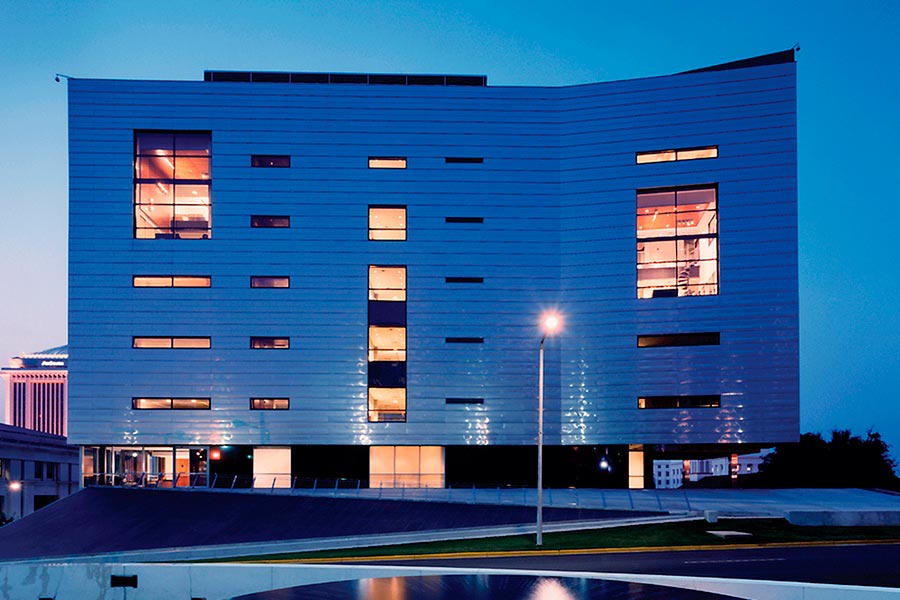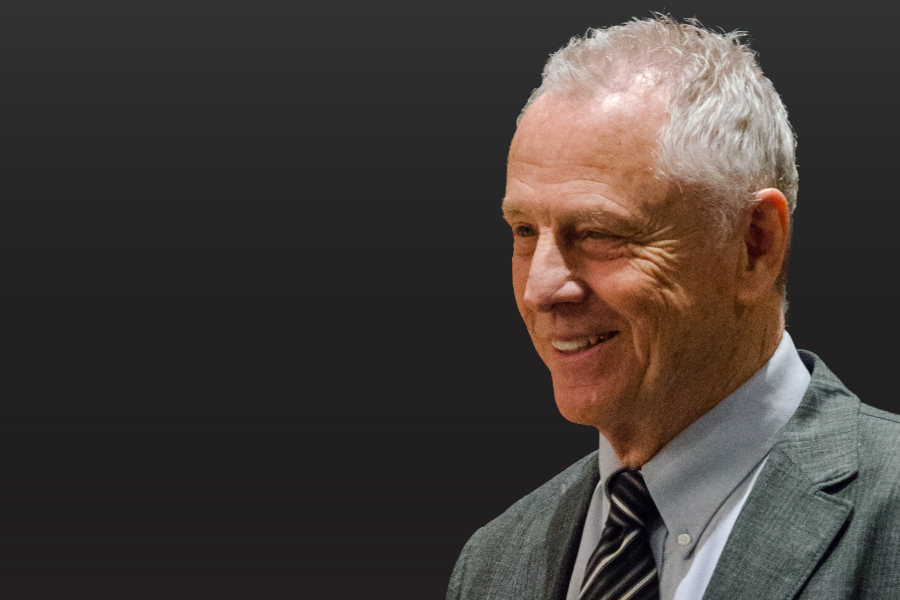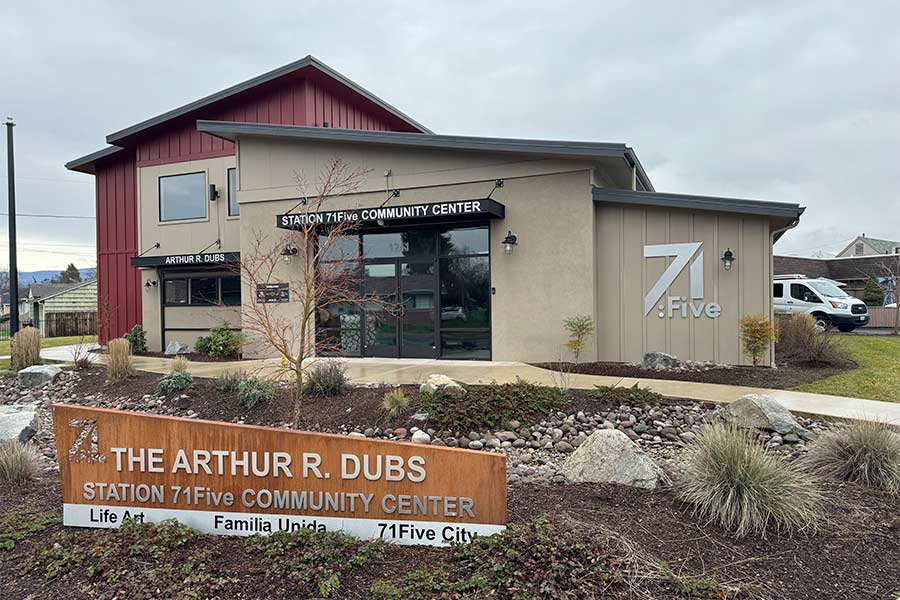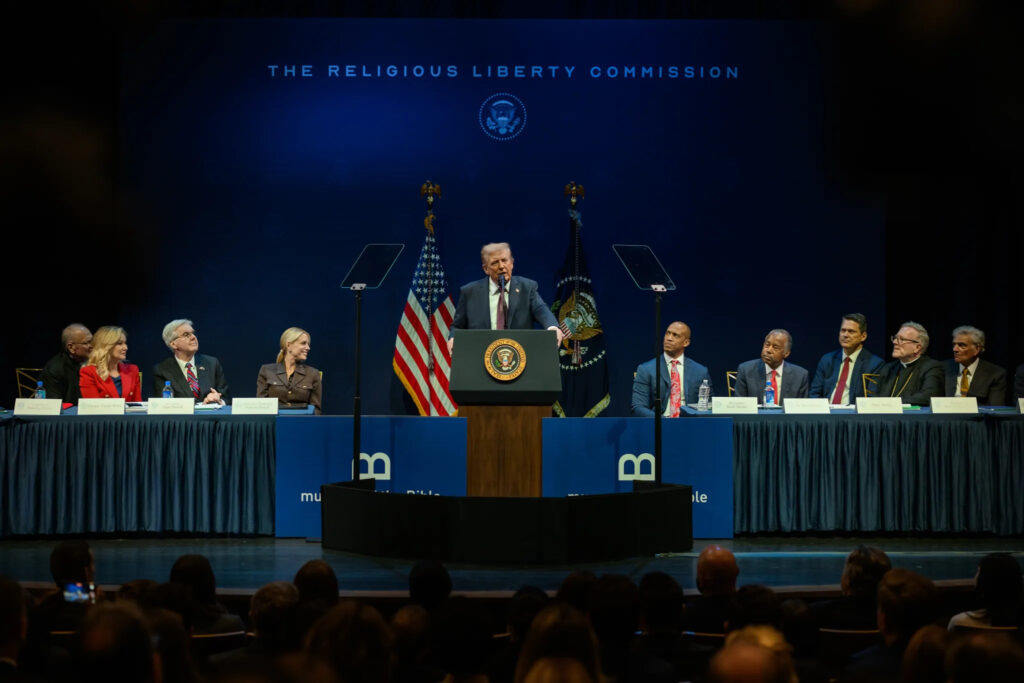
When a pair of attorneys named Morris Dees and Joe Levin founded the Southern Poverty Law Center (SPLC) over 50 years ago, they did so with the stated intention of ensuring equal rights for everyone in America, particularly racial minorities. Unfortunately, that claim never came to fruition.
Today, the SPLC spends its time attacking political opponents, falsely accusing them of bigotry in an attempt to silence them. The organization accuses those who do not subscribe to its views of engaging in “hate,” and it uses false accusations to demonize its opponents rather than engaging in civil discourse.
What is the Southern Poverty Law Center?
The SPLC is a nonprofit legal organization based in Montgomery, Alabama. It was founded in 1971 by two lawyers, Morris Dees and Joe Levin.
But in the decades that followed, the SPLC shifted from legal action to politicized fearmongering. Instead of engaging in civil debate, the group now attempts to smear those with differing views.
How has the Southern Poverty Law Center changed?
In the 1980s, the SPLC began focusing its attention on the Ku Klux Klan. It created the “Klanwatch” project in 1981 to “monitor Ku Klux Klan activity across the country.”
Journalist John Egerton wrote that “Dees saw the Klan as a perfect target” because he “perceived chinks in the Klan’s armor: poverty and poor education in its ranks, competitive squabbling among the leaders, scattered and disunited factions, undisciplined behavior, limited funds, few if any good lawyers.”
Despite Morris Dees’ claims about his goals, former SPLC staffer Bob Moser suggested in an article for The New Yorker that Dees had another motive. As Moser put it, “the only thing easier than beating the Klan in court … was raising money off Klan-fighting from liberals up north.”
At one point, the SPLC’s entire legal staff quit to protest Dees’ constant focus on the KKK. They accused Dees of using the Klan to raise money and ignoring lower-profile cases that they believed were more important.

The SPLC later rebranded “Klanwatch” to “Hatewatch” to monitor other so-called “hate groups,” and the organization continues fundraising on this project today. The problem is that the SPLC wields the “hate group” label as a cudgel to beat its political and ideological opponents.
The SPLC regularly labels organizations as “hate groups” simply because they hold political views different than its own. Cornell Law professor William Jacobson told Politico that he believes the SPLC is dishonestly using the “hate group” label to shut down debate.
“Time and again, I see the SPLC using the reputation it gained decades ago fighting the Klan as a tool to bludgeon mainstream politically conservative opponents,” Jacobson said.
“For groups that do not threaten violence, the use of SPLC ‘hate group’ or ‘extremist’ designations frequently are exploited as an excuse to silence speech and speakers.”
What does the Southern Poverty Law Center do now?
Today, the SPLC still engages in a small amount of litigation. But by its own admission, its influential victories have become scarce. From 1980 to 2000, the SPLC claimed 17 “landmark cases.” From 2000 to today, it boasts just three, with the latest one as far back as 2016.
Instead, the SPLC spends most of its energy identifying and defaming opponents by accusing them of hatred. Its “Hatewatch” project “monitors and exposes the activities of the American radical right.”
The SPLC website also advertises a “Hate Map,” which points to locations of hundreds of so-called “hate groups” around the country.
Each year, the SPLC releases a list of these “hate groups.” News outlets cover the publication of the list—often uncritically—ensuring that the SPLC is thrust into the national spotlight at least once a year.
Some groups, like the KKK, certainly are reprehensible. But the SPLC uses those groups as a cover for others on the list, including a number of religious nonprofits like Alliance Defending Freedom. The SPLC has labeled ADF as an “anti-LGBT hate group,” but this accusation is plainly false.
The Southern Poverty Law Center’s labels have led to violence
The “hate group” label carries extreme connotations, and it should not be thrown around lightly. Sadly, the SPLC has flippantly misused the label without considering the possible consequences.
In 2012, a gunman entered the Washington, D.C., headquarters of the Family Research Council (FRC), a Christian group dedicated to defending life and family values.
The gunman would later tell investigators that he “planned to stride into the building and open fire on the people inside in an effort to kill as many as possible.” He did shoot an unarmed security officer, but the officer survived and heroically subdued the gunman before he could harm anyone else.
Regarding his motivations, the gunman said he “had chosen the research council as his target after finding it listed as an anti-gay group on the website of the Southern Poverty Law Center.”
He was ultimately charged with three felonies, including a terrorism offense. It was the first conviction under the Washington, D.C., Anti-Terrorism Act of 2002.
Jessica Prol Smith, a former FRC employee who was working in the headquarters on the day of the attack, wrote that she was both fearful and frustrated as she sheltered in place. But she made it clear that violent attacks and threats will not change her commitment to Christian beliefs.
“I’m lucky — blessed, really — that I didn’t take a bullet for my beliefs back in 2012,” Smith wrote.
“But the center’s ugly slander and the gunman’s misguided attack have sharpened my resolve and deepened my faith in my Savior, who commands my destiny and shields me from the schemes of man. The same is true for my colleagues.”
What happened to Morris Dees?
In 2019, then-SPLC President Richard Cohen announced the firing of co-founder and former chief litigator Morris Dees.
The news came as a shock to many, as Dees had been the de facto face of the company for decades. In a statement, Cohen did not detail the exact reasons why the company decided to fire Dees, only noting that he “failed to meet” the organization’s standards.
Reports soon suggested that Morris Dees’ firing stemmed from anger inside the organization about the mistreatment of minority and female staffers.
Some staffers even signed letters alleging that multiple reports of sexual assault by Dees had been ignored and that female employees sometimes faced retaliation for making the claims. Dees said these allegations were false.
One week after firing Morris Dees, Cohen himself announced he would be stepping down. In an email to the company, Cohen said he took responsibility for “whatever problems exist at the SPLC.”
What is the Southern Poverty Law Center’s goal?
According to its website, the SPLC wants to “dismantle white supremacy, strengthen intersectional movements, and advance the human rights of all people.” But some high-ranking employees have made statements that contradict these stated goals.
SPLC Senior Fellow Mark Potok, who formerly served as the editor-in-chief for the SPLC’s Intelligence Report, said, “Sometimes the press will describe us as monitoring hate crimes and so on…. I want to say plainly that our aim in life is to destroy these groups, to completely destroy them.”
The SPLC has never renounced this statement.
If the SPLC truly sought to dismantle groups that promote reprehensible ideas, that would be an honorable goal. The problem is that often, the “hate-group” label simply refers to a group that disagrees with the SPLC on political issues.
Instead of engaging in meaningful debate with groups like ADF and FRC, the SPLC just wants to “destroy” groups with differing beliefs.
This goal is not helpful for our society, which desperately needs institutions that will foster real dialogue about important issues. It also represents a lack of respect for the human dignity of those who disagree with the SPLC.
What has the Southern Poverty Law Center said about Alliance Defending Freedom?
ADF advocates for constitutionally protected freedoms including the freedom of religion and the freedom of speech. Sometimes, like in the cases of Jack Phillips and Lorie Smith, this means the freedom to decline to express messages that violate your deeply held beliefs.
Jack and Lorie are happy to serve anyone, including those who identify as LGBT. They simply don’t want to be forced to expresses messages that violate their beliefs.
Any ADF client who has declined to custom-create art for a customer has always done so based on the message requested and never based on the person requesting it. Nonetheless, the SPLC has chosen to ignore this truth and falsely accuse ADF of bigotry.
The SPLC deliberately mischaracterizes our work to validate its discredited “hate group” label, cobbling together a series of false claims and distortions to publicly smear ADF, our clients, and any public figures with any connection whatsoever to ADF.
Longtime ACLU president Nadine Strossen is one of several voices on the left who have pushed back:
“I consider ADF to be a valuable ally on important issues of common concern, and a worthy adversary (not an ‘enemy’) on important issues of disagreement; what I do not consider it to be, considering the full scope of its work, is a ‘hate group.’”
The SPLC has hurled a number of accusations at ADF in an attempt to validate its “hate group” label, but each allegation has been false. We debunk a few of the SPLC’s myths below.
Myth #1: ADF is an “anti-LGBT group”
ADF believes that all people are made in the image of God and that everyone is worthy of dignity and respect.
While ADF takes legal and policy positions that are informed by a biblically based understanding of marriage, human sexuality, and the sanctity of life, we understand and respect the fact that others have different views than we do.
For example, whenever ADF earns a legal victory for free speech, it does more than just ensure our clients can choose what to say and not to say. Victories for free speech also ensure our opponents are free to express their beliefs, and that right is just as important.
ADF believes shutting down one side of a debate is never a good solution. Even if someone disagrees with us, we respect their humanity, dignity, and identity as being made in the image of God, and their right to advocate for their own beliefs.
Myth #2: ADF supports the re-criminalization of homosexuality
ADF has never supported the passage of laws criminalizing homosexuality.
Myth #3: ADF supports the forced sterilization of people who identify as transgender
ADF condemns the forced sterilization of any person.
The SPLC began spreading this lie following ADF International’s legal brief supporting the rights of European countries to establish their own laws instead of having their laws dictated by international courts acting outside their jurisdiction.
The brief had nothing to do with forced sterilization, but that didn’t stop the SPLC from publishing this myth.
Myth #4: ADF is trying to stop people who identify as LGBT from adopting children or providing foster care
ADF does not seek to restrict the freedom of secular groups to place children by their own standards, within the law.
We have defended and will continue to defend the rights of faith-based foster care and adoption agencies to operate according to their beliefs.
ADF believes that marriage is between one man and one woman. While so many single moms or dads are truly incredible parents to their children, we believe that children flourish best when they are raised by a loving mom and dad.
The U.S. Supreme Court has acknowledged twice since 2015 that these beliefs are held by reasonable people and are constitutionally protected. But some partisan activists are urging the government to shut down faith-based adoption and foster care providers who hold these beliefs and place children consistent with them.
ADF has successfully defended the rights of multiple faith-based adoption and foster care providers, including Catholic Charities West Michigan and New Hope Family Services, to operate according to their religious beliefs.
At a time when there is a national shortage of adoptive and foster families, we believe more diverse provider networks are needed to help more children find loving homes. Seeking to shut down these networks because someone disagrees with their beliefs doesn’t benefit anyone.
Conclusion
While the SPLC claims to be a bastion for civil rights, the reality is and has been much more sinister. The organization does not want to engage in meaningful debate but instead wants to silence its opponents by labeling them “hate groups.” This label has led to violence.
Former employees have alleged that organizational leaders fostered a toxic culture and directly contradicted the organization’s stated goals with their actions.
And Morris Dees, the man who was synonymous with the SPLC for decades, was fired for unspecified violations of the organization’s standards.
Our pluralistic society needs organizations with a variety of different views, but we must be able to engage in civil debate about the most pressing and important issues we face today. The SPLC is advocating for the opposite, which poses a threat to the freedoms we hold so dear in this country.




